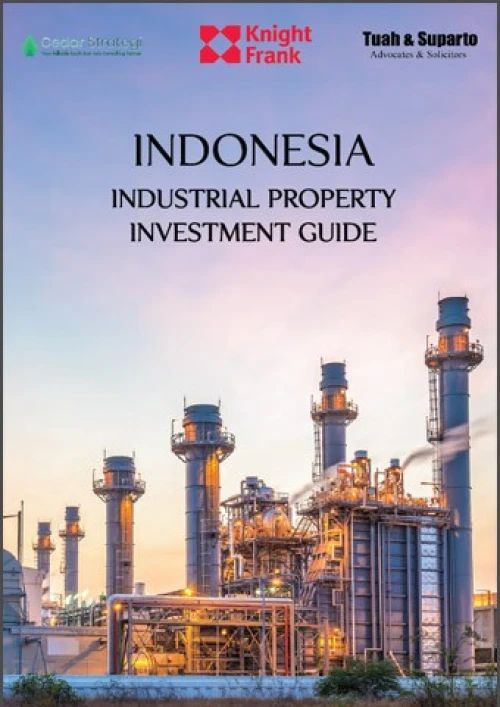
Over the past year, Knight Frank Indonesia has observed that there is an increasing trend in the dynamics of foreign investments searching for sites in Indonesia. In addition to site searches, follow-up questions pertaining to how-to-invest in Indonesia have become a major topic to consider for these foreign investors, not to mention the tax and legal aspects.
Global industrial relocation has become a huge opportunity to attract investment from foreign industrialists. Based on the latest data from the Investment Coordinating Board (BKPM), seven multi national companies; from electronics, automotive, and auto parts sectors, have confirmed their relocation plans to Indonesia. Tax allowance, tax holiday, free rent for the first ten years, and other licensing accommodations from the local government are just some of the incentives provided to attract foreign invetments and to compete with other other neighboring countries that are also wooing the same pool of potential global relocation companies.
The industrial sector is very prominent in boosting Indonesia’s economy, contributing around 20% of the national GDP in Q3 2020. Amid the pandemic, industrial has shown that it remains prospective on average with certain sectors performing better than others.
Some highlights of Indonesia’s competitive advantages to attract global industrial relocation include:
- More than half of international trade tracks pass Indonesia waterway,
- 4th biggest economy in the world,
- 70% of the population are productive age by 2030,
- A pool of 65-million middle class by 2030, thus spurting growths in e-commerce, FMCG, and data centers,
- Ultra High Net Worth Individuals (UHNWI) are predicted to grow by 57% (or 33.057 people) by 2024,
- The manufacturing sector has dominated and contributed as the main driver in major cities in the Greater Jakarta Metropolitant Area (Jabodetabek), Surabaya, Semarang, Medan, Batam, and Makassar,
- Until 2024, the government has provided an investment budget of around 3378T Rupiah for infrastructure development (road, train, port, airport, public transportation, electricity, telecommunication, and waste water treatment),
- More than 108 industrial estates (https://kfmap.asia/industrial) and 15 special economic zones (SEZ, https://kfmap.asia/special-economic-zone) have been established across Indonesia,
- Compared to other competing countries for global relocation sites, Indonesia is still competitive in its labor resources, domestic market size, minimum wages, and government incentives.
Willson Kalip, Country Head of Knight Frank Indonesia said, “Despite the pandemic crisis since early 2020, the Indonesian government remains strongly committed to sustain growth by focusing on new infrastructure, human capital development and structural reforms to attract investment and fiscal support. Basically, the real demand of property sector is derived from the economic generator in the industrial sector, particularly manufacturing. As a result, it should become the key engine of economic growth recovery moving forward.”
This point is further reiterated by Andrew R. Tuah from Tuah & Suparto Advocates and Solicitors, “Members of the business community, be it local or foreign, can appreciate the passing of the Omnibus Law to allow Indonesia score higher in the considerations of foreign investors as an investment destination. More importantly for the real estate sector, the digitisation components of the Omnibus Law should ease the bureaucracy into a more efficient and competitively comparable to international standards.”
Click here to download the Indonesia Industrial Property Investment Guide report :
https://kfmap.asia/research/indonesia-industrial-property-investment-guide/773
For further information, please contact:
Miranti Paramita
Manager, Marcomm
Syarifah Syaukat
Senior Research Advisor, Research
Donan Aditria
Associate Director, Strategic Consultancy






